Victorian Ombudsman‘s career breaking the glass ceiling
Deborah Glass has watched on as coroners cut open bodies, been the target of desperate politicians and probed deadly riots. But one case lingers with her.
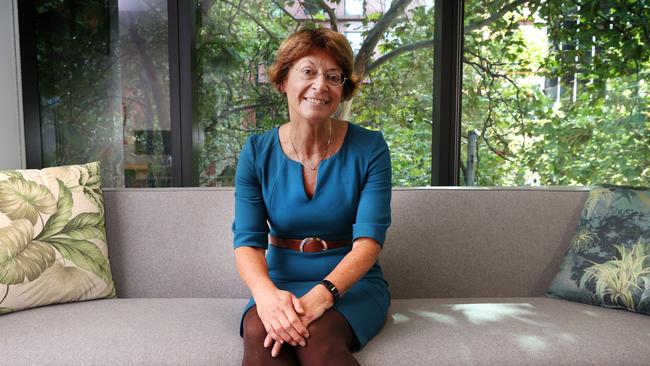
Victoria
Don't miss out on the headlines from Victoria. Followed categories will be added to My News.
Victorian Ombudsman Deborah Glass has investigated deaths in custody, police shootings, and deadly riots.
She has stood next to coroners as they cut open bodies, checking for evidence of foul play, and been targeted by desperate politicians.
But when asked to describe a case that stuck with her, she nominates her “perfect complainant”, Allan Lorraine.
In 2014 the then-90 year old wrote to her office about the financial collapse of his supported residential services accommodation, Mentone Gardens.
“Allan Lorraine and his wife, who had severe dementia, had basically lost everything,” she said.
“There he was, tapping out his old-fashioned letters on an old-fashioned typewriter to everybody under the sun, because he was convinced that something had gone wrong.”
Lorraine organised a meeting at an RSL in Melbourne’s southeast with a group of elderly people – some over 100 years of age – who shared their stories.
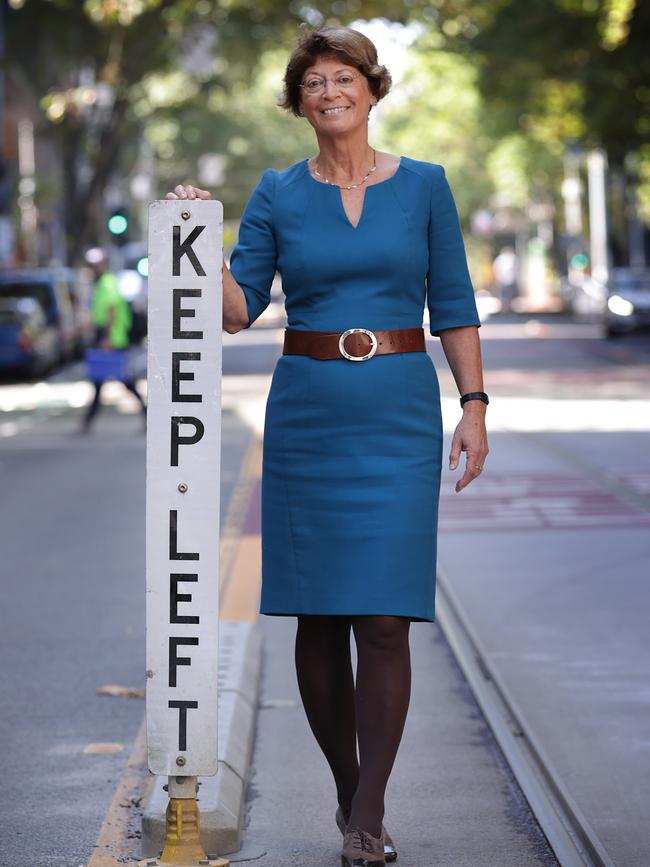
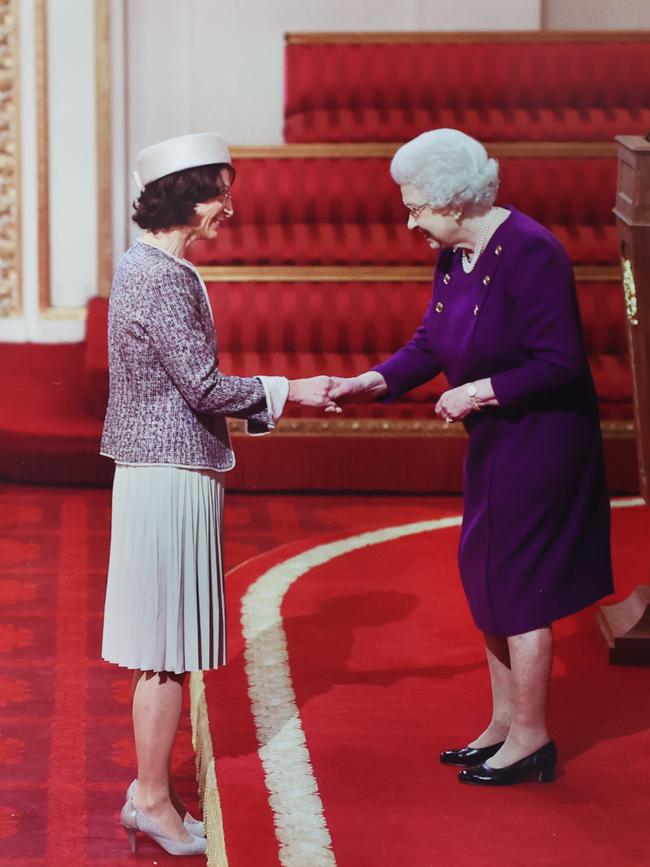
His “extraordinary persistence” triggered changes to the oversight of care facilities in Victoria and $4.33m paid out to those affected.
“What was so powerful for me about that case was the human impact, the impact of what had happened to this facility on a group of very elderly people and their families,” she said.
“It wasn’t just about money, it was their dignity. It was their independence they had lost, they couldn’t buy Christmas presents for their grandchildren.
“Allan was convinced – rightly convinced – that something had gone wrong, that there was an injustice that needed to be righted.”
Allan Lorraine died in 2020 after contracting Covid-19, but his family held a memorial in 2021 at which Glass spoke.
“I don’t know whether I described him as the perfect complainant or my favourite complainant, but he would have been both,” she said.
The case was among the first Glass probed after returning to Australia from the UK, where she had most recently chaired the powerful Independent Police Complaints Commission.
That was a role that almost broke her.
FEELING THE HEAT
The most notorious decision Glass made at the helm of the IPCC was to reinvestigate the conduct of police at an FA Cup semi-final in 1989.
Known as the Hillsborough disaster, 96 football fans were crushed and killed before the match between Liverpool and Nottingham Forest.
For years, police had blamed hooligans for the crush.
Glass’s probe established that police decision-making, which included opening an exit gate to the ground to try to relieve crowd numbers, was to blame.
Prior to that inquest finding, a perfect storm of cases and public pressure had combined on the shoulders of the straight-shooting Glass.
“My low point in this job came around 2011 when there were the London riots. The London riots were scary,” she said.
“They were started following the death of a young black man in police custody. And that led to an investigation.”
Police and politicians partly blamed Glass and her team for the riots because they said the IPCC hadn’t released enough information to “calm the troubled waters”.
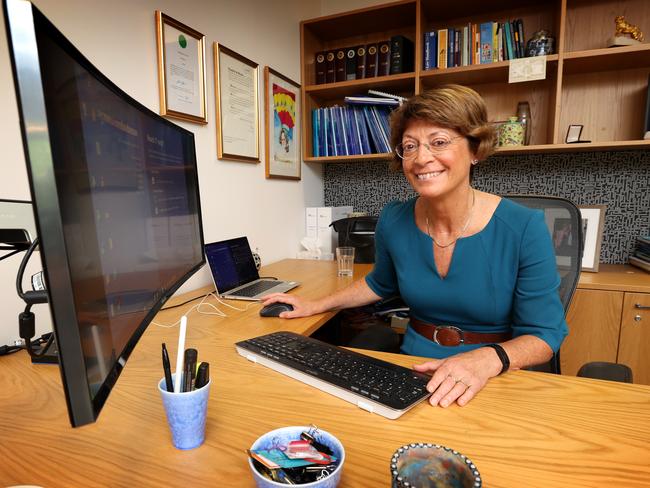
“I remember just having to bear the brunt of this political rage, which was completely unfair,” she said.
Weeks earlier, she had overseen the case into police misconduct during the News of the World phone hacking saga.
“There was phone hacking, police shootings, riots, all within the summer of 2011,” she said.
“And I do remember a point there, thinking, why exactly am I still doing this?”
Amid the frenzy, Glass was awarded an Order of the British Empire for contributions to public service.
“I think somebody there thought, for God’s sake, fling her a bone.”
But it was clear validation of work well done.
Glass’s father Reuben and stepmother Ann were able to see the award being presented at Buckingham Palace — although they almost didn’t make it.
The visiting Australians had forgotten to bring their passports to gain entry to the palace, which led to a “mad dash” through the streets of London to retrieve the documents and get back in time to see Queen Elizabeth II hand over the medal.
Two years later, Glass’s term expired and she saw an opportunity to head home to Australia.
She was to begin a decade-long role as Victoria’s first female ombudsman.
AN ‘IRRITATINGLY GOOD GIRL’
Shortly before her father Reuben’s death from cancer in 2019, the Glass family took a road trip to Cobargo, NSW.
It was six decades since Dr Glass had done a three-year stint as GP in the small country town, during which wife Pauline gave birth to Deborah at nearby Bega, in 1959.
When the Cobargo community heard Dr Glass was returning, they turned out in droves.
“The road trip was extraordinary and very moving because my father was remembered by the people of Cobargo 60 years later. He was mobbed by the children of people whose lives he’d saved,” she said.
“The local farming population and their descendants were coming up and showing off their scars.”
Glass said the experience reminded her “so few of us really have a chance to recognise our own legacies”.
Fresh out of medical school at the time, Reuben Glass went on to study paediatrics. Pauline Glass, described by her daughter as a “trailblazer for women”, trained as a dietitian and ended up as an Adviser to government agencies.
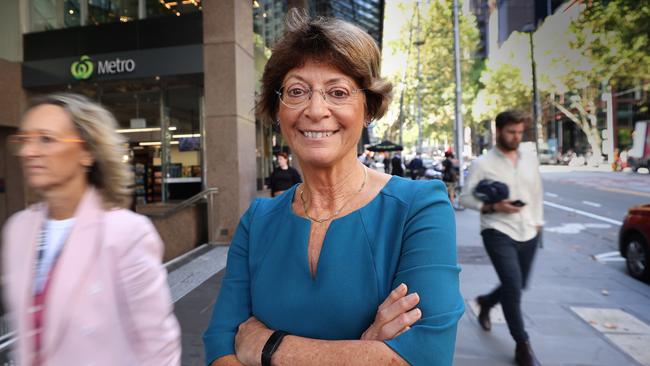
In Melbourne, Glass went to school at Mount Scopus Memorial College and described herself as a “pretty serious, quite intense” child.
“I was probably quite an irritatingly good girl, but I made up for it later on,” she said.
A law degree at Monash University came next.
“There is an expectation in Jewish families that if you’re a clever kid, that you’re going into law or medicine, so it’s a bit of a cliche,” she said.
“I’d love to be able to say (law) was because of my great passion for justice.
“But I couldn’t stand the sight of blood.”
Glass quickly realised law “was not for me”.
Instead, she picked up a backpack and went travelling “with grand plans of being a writer, saving the world in some way”.
After globetrotting and taking on odd jobs, Glass settled in Switzerland and found work with an investment banking firm.
She rose through the ranks and joined the southeast Asian branch based in Hong Kong, shortly before the stock market crash of 1987.
“That’s where I developed a real interest in regulation,” she said.
“It was also the first time, I think, I was confronted by the ‘internal values conversation’.”
“I found the business fascinating, I just didn’t care about its profitability.”
BREAKING THE GLASS CEILING
Switching to a regulatory and oversight role seemed a natural transition for Glass, given long-held social justice views.
But she still had to make a jump from the track she was on.
“It is advice I’ve often given to students and young people, about being open to opportunity,” she said.
“Cast your net, don’t allow yourself to go along this programmed track if that doesn’t feel right for you.”
After a decade in Hong Kong she landed in the UK, where she came up against a “gentleman’s club” at the Investment Management Regulatory Authority.
Glass was approached for a job but insisted on being admitted to the board, effectively asking to join that club.
“And I said that, knowing that as a woman, as a Jew, and as an Australian, I would be regarded as having a ‘triple disability’,” she said with a laugh.
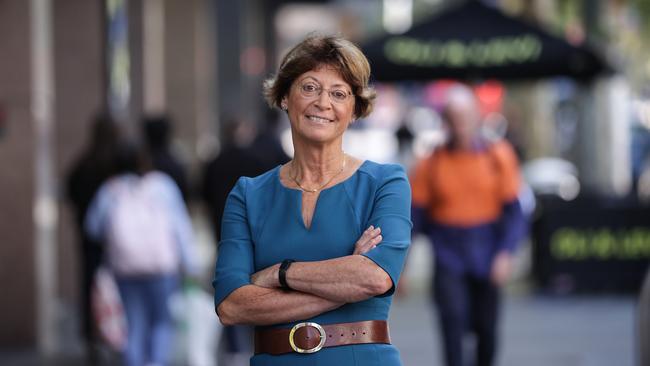
“You’re very conscious of not being like them.”
Glass soon applied for a role at the London-based police complaints authority, which later became the IPCC.
Experience doing voluntary police custody checks in the UK had helped provide grounding for the new role.
“Visiting people in police custody is a fascinating exposure to humanity in some cases at its worst,” she said.
“But you also see people who care; I’ve encountered some wonderful police officers in those roles … and some pretty dreadful ones.”
The IPCC was a revolutionary reform in the UK, established with high expectations unmatched to funding allocations.
It’s a familiar complaint from integrity chiefs worldwide, and one which has been a public issue during Glass’s first nine years as Ombudsman.
SETTING A COLLISION COURSE
In the month prior to Victoria’s November state election, Glass and two other integrity bosses – Auditor-General Andrew Greaves, and IBAC commissioner Robert Redlich – quietly released a paper criticising their agency funding models.
The main problem was that the executive, rather than parliament, decides on funding; something that could conflict with investigations involving the government of the day.
It wasn’t the first time Glass had pointed to budget deficiencies, including when dealing with complaints made against government.
One of the most time-consuming and political probes she has done during her term was into Labor’s so-called red shirts election rort, which found MPs had misused electorate allowances to pay for party political campaigning.
It was a typically measured report from Glass, free from hyperbole, but it described the scheme as an “artifice” and “wrong”.
The office, along with the IBAC, has since delivered a stinging report into Labor branch stacking.
During this time she said there has never been direct interference in her work, but that “indirect” pressure stems from “the question of the funding of my office”.
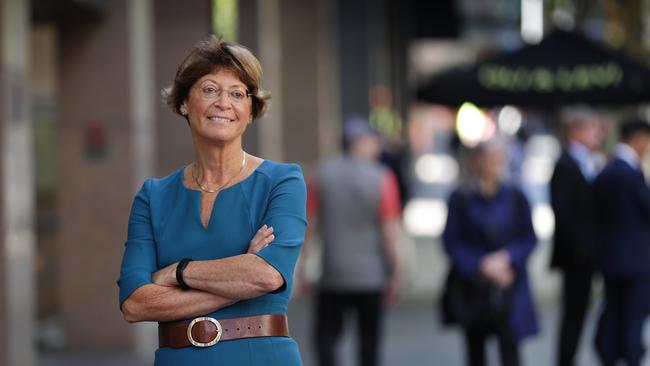
“A few years ago, the government responded to the concerns I raised,” she said.
“I made the pretty compelling argument that when you’re investigating the government of the day, it’s really difficult to be going back to that government for your funds.
“So a measure of budget independence was brought into my Act as a result of that, which I welcome. But it’s still not far enough.”
Glass and the Andrews Government also clashed during the pandemic, when the Ombudsman said the government should apologise for how it locked down public housing tenants.
One of the final acts of her 10-year term will be to table a report into allegations about the politicisation of the public service in Victoria.
It has the potential to be explosive, and originated from a complaint made by a former Andrews Government MP that alleged the government “stacked” people with political affiliation into public sector executive roles.
Glass is tight-lipped about the probe, but makes the point that throughout her career, “doing the right thing is not going to be popular”.
“You’re constantly trying to be pulled in one direction or another by people with a political agenda,” she said.
“And you just have to play it completely straight.
“For me, it’s always been about the evidence. But it’s also, what’s the message? What’s the narrative? What’s fair?
“I am fundamentally a public interest person, whatever that looks like.”





